Related Research Articles

Wilson Pickett was an American singer and songwriter.

Robert Calvin Bland, known professionally as Bobby "Blue" Bland, was an American blues singer.
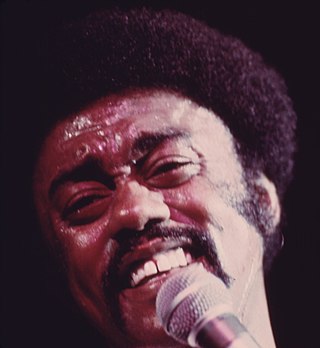
Johnnie Harrison Taylor was an American recording artist and songwriter who performed a wide variety of genres, from blues, rhythm and blues, soul, and gospel to pop, doo-wop, and disco. He was initially successful at Stax Records with the number-one R&B hits "Who's Making Love" (1968), "Jody's Got Your Girl and Gone" (1971) and "I Believe in You " (1973), and reached number one on the US pop charts with "Disco Lady" in 1976.

Clarence George Carter is an American singer, songwriter, musician and record producer. His most successful songs include "Slip Away", "Back Door Santa", "Patches" (1970) and "Strokin" (1986).
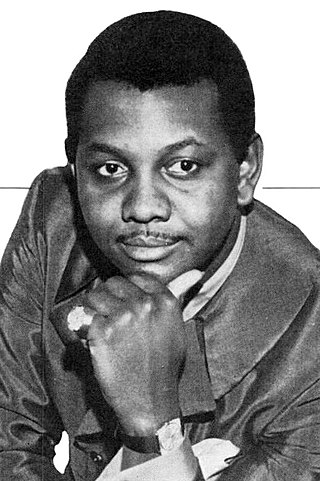
Tyrone Davis was an American blues and soul singer with a long list of hit records over more than 20 years. Davis had three number 1 hits on the Billboard R&B chart: "Can I Change My Mind" (1968), "Turn Back the Hands of Time" (1970), and "Turning Point" (1975).
Bonny "Mack" Rice, sometimes credited as Sir Mack Rice, was an American songwriter and singer. His best-known composition and biggest hit as a solo performer was "Mustang Sally". He also wrote "Respect Yourself" with Luther Ingram.
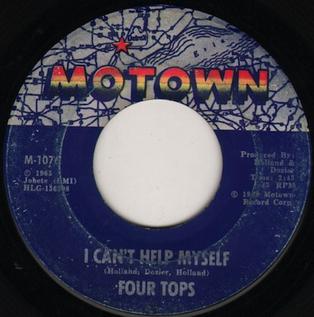
"I Can't Help Myself (Sugar Pie Honey Bunch)" is a 1965 hit song recorded by the Four Tops for the Motown label.

Roger Troutman, also known as Roger, was an American singer, songwriter, record producer, multi-instrumentalist and the founder of the band Zapp who helped spearhead the funk movement and influenced West Coast hip hop due to the scene's heavy sampling of his music.
Garnet Mimms is an American singer, influential in soul music and rhythm and blues. He first achieved success as the lead singer of Garnet Mimms & The Enchanters, and is best known for the 1963 hit "Cry Baby", later recorded by Janis Joplin. According to Steve Huey at AllMusic, his "pleading, gospel-derived intensity made him one of the earliest true soul singers [and] his legacy remains criminally underappreciated."

Edwin Reuben Hawkins was an American gospel musician, pianist, vocalist, choir master, composer, and arranger. He was one of the originators of the urban contemporary gospel sound. As the leader of the Edwin Hawkins Singers, he was probably best known for his arrangement of "Oh Happy Day" (1968–69), which was included on the "Songs of the Century" list. In 1970, the Edwin Hawkins Singers made a second foray into the charts, backing folk singer Melanie on "Lay Down ".
Otha Leon Haywood was an American funk and soul singer, songwriter, and record producer. He is best known for his 1975 hit single "I Want'a Do Something Freaky to You", which has been frequently sampled by musicians such as Dr. Dre among others.

James & Bobby Purify were an R&B singing duo, whose biggest hits were "I'm Your Puppet" in 1966, which reached number six in the US Billboard Hot 100 chart and in a re-recorded version number 12 in the UK Singles Chart, and "Let Love Come Between Us" in 1967, which reached number 23 in the US. The original "Bobby Purify" was replaced by a second "Bobby Purify" in the 1970s.
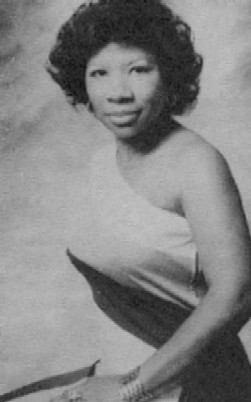
Theola Kilgore was an American soul and gospel singer.
"(I Love You) for Sentimental Reasons" is a popular song written by Ivory "Deek" Watson, founding member of the Ink Spots and of the Brown Dots, and William "Pat" Best, founding member of the Four Tunes.
Joseph Hinton was an American soul singer.
Billy Butler was an American soul singer and songwriter active in the 1960s and 1970s. He was born in Chicago, Illinois. His elder brother, Jerry, was also a singer and songwriter for whose band Billy played the guitar.
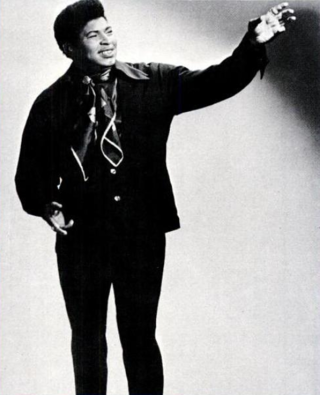
Theodore Taylor was an American blues singer.
John Leroy "Johnny" Heartsman was an American electric blues and soul blues musician and songwriter. He showed musical diversity, playing a number of musical instruments, including the electronic organ and flute. He contributed his distinctive guitar playing to a number of recordings made in the San Francisco Bay Area in the 1950s and 1960s. He continued playing until his death.
Hank Snow was a Canadian country music singer-songwriter and musician. His discography consists of 46 studio albums and 89 singles. Of his 89 singles, seven reached number 1 on the U.S. Billboard Hot Country Songs charts and two reached number 1 on the Canadian RPM Country Tracks chart. Snow spent his entire recording career with RCA Victor records. Snow had his first hit in the United States in 1950 with I'm Moving On and his final hit in 1974 with Hello Love, at the time he was the oldest country singer to have a Number #1 charted record.
Leroy Phillip Mitchell, often credited as Prince Phillip Mitchell, is an American R&B singer, songwriter, and record producer. He wrote "Starting All Over Again" for Mel and Tim, and "It Hurts So Good" and "Leftovers", which were both hits for Millie Jackson, as well as having some success in the 1970s and 1980s as a solo singer.
References
- 1 2 Eagle, Bob; LeBlanc, Eric S. (2013). Blues – A Regional Experience. Santa Barbara: Praeger Publishers. p. 341. ISBN 978-0313344237.
- 1 2 3 Joel Selvin, "One record gave singer Rodger Collins a taste of fame, but no fortune. ...", SFGate, March 9, 2004. Retrieved November 14, 2016
- ↑ Whitburn, Joel (1996). Top R&B/Hip-Hop Singles: 1942–1995. Record Research. p. 38.
- ↑ "Tuff Turf – The Original Soundtrack", Discogs.com. Retrieved November 14, 2016
- ↑ "Rodger Collins Discography at Discogs". discogs. Retrieved March 31, 2011.
- ↑ Roberts, David (2006). British Hit Singles & Albums (19th ed.). London: Guinness World Records Limited. p. 116. ISBN 1-904994-10-5.
- ↑ Rodger Collins discography, CDBaby.com. Retrieved November 14, 2016